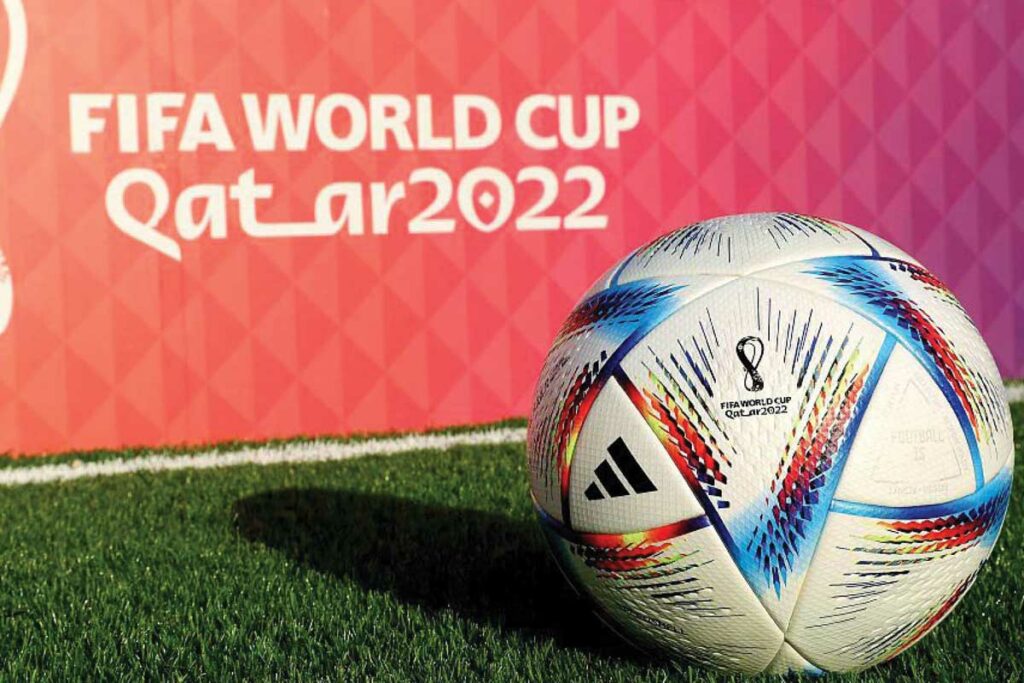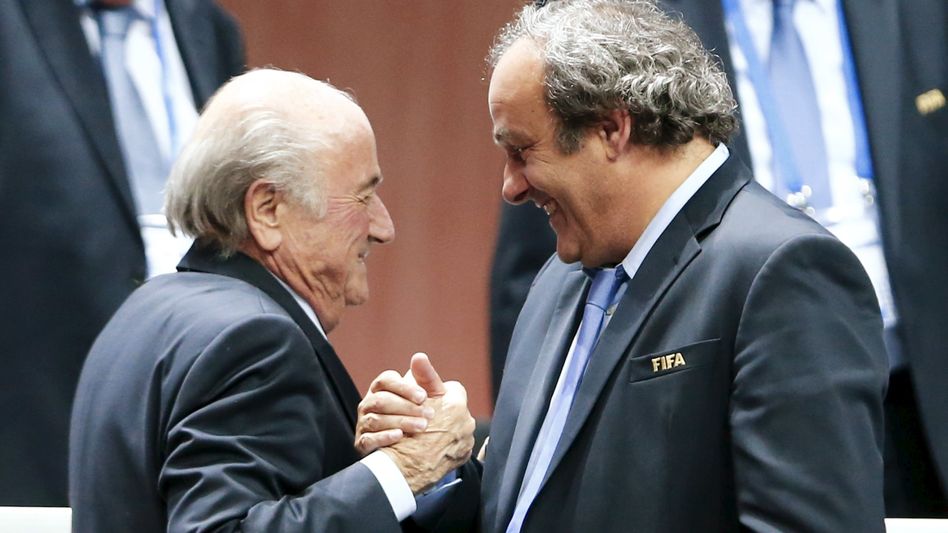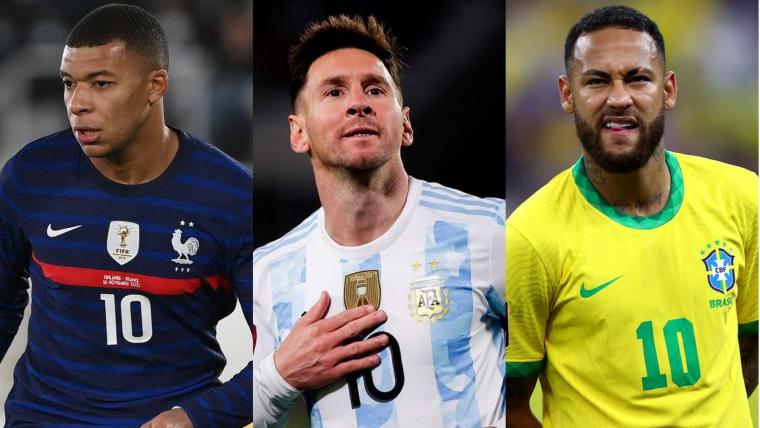Mon, Nov 21st 2022
Spanning six continents, boasting millions of players, billions of fans, and some of the wealthiest sponsors in the world, no other sporting organization comes close to rivaling the power of FIFA. With such enormous influence, it’s no wonder FIFA has faced an onslaught of scandals and corruption over the years.

The first match for FIFA 2022’s World Cup was played November 20th and the final will be on December 18th.
Over the next month millions of sports fans from around the world will be tuning in to see if their team has what it takes to win it all at the 2022 FIFA World Cup in Qatar. But how did this once small football club turn into the biggest sports organization on earth and why is it headquartered in Switzerland?
The International Federation of Association Football was founded in 1904 by seven European countries to “govern football and to develop the game around the world,” according to the group’s mission statement. It is football’s ultimate authority, regulating all aspects of play, including rules of the game, international transfers of players, and the World Cup.
Thanks to FIFA’s strategic eye, today football is the world’s most played and watched sport. The numbers are truly astonishing. During the 1998 World Cup in France, there was a cumulative audience of 37 million. In 2018, a staggering 13% of the world’s population watched as France defeated Croatia in Russia to win the World Cup. There also are 150 million registered players within FIFA, including some of the highest-paid athletes in the world.

The FIFA World Cup 2022 games will be held in eight stadiums in Qatar. The Al Janoub stadium was designed by famous Iraqui-British architect Zaha Hadid.
FIFA: the United Nations of Football
What began as a small club is now structured like an international governing body. In fact, with 211 member associations, FIFA is larger than the UN General Assembly. Under FIFA’s colossal umbrella, six continental confederations oversee the game in different regions of the world. These confederations govern the national football leagues in their respective regions.
At the head of the entire organization is FIFA’s president, who is elected by the FIFA Council, the main decision-making body of the association. Members of FIFA’s congress yield huge decision-making power, including electing FIFA’s president every four years and selecting who will host the World Cup through an exhaustive ballot system.
“I was a little bit surprised with the power that I was given,” former FIFA president Sepp Blatter stated during an interview in the recent Netflix documentary, FIFA Uncovered.
Where the grass is greener: the land of the international organization
From its inception, FIFA has been firmly intertwined with Switzerland. As one of the founding seven nations, Switzerland has been FIFA’s legal and physical headquarters since 1932.
The organization has also had a Swiss president at its helm since 1996. Sepp Blatter, a name embroiled in scandal, reigned from 1996 to 2015 when the ethics committee asked him to step down. He then passed the torch onto Gianni Infantino, who’s been FIFA’s president ever since.

The headquarters of FIFA is a distinctive complex in Zürich which cost more than $200 million to build.
An invitation for scandal: FIFA takes advantage of Swiss law
Sports bodies in Switzerland enjoy association status, meaning FIFA is internationally recognized as a non-profit organization. Switzerland’s association law was initially drafted to govern small, local clubs, which is one of the reasons it’s so liberal. Associations are not required to register with the state or to publish their accounts. They are granted tax breaks and flexible legal terms that allow them to govern their own affairs.
The lax rules around associations within Switzerland have led to controversy and numerous scandals. Yvan Henzer, a lawyer, specializing in sports law, explained to SwissInfo, that until the law changed in 2016, “The rules of an association simply stipulated that a candidate may not offer a benefit or buy someone’s vote, but if a member actually did that, it was just a disciplinary breach and not a criminal offense.”
NorthRow, a British company specializing in fighting financial crime, points out that politically exposed people (PEPs), like members of FIFA’s congress, are “exposed to more opportunities to accept bribes, be involved in corruption by virtue of their position, and launder money.”

UEFA President Michel Platini (left) congratulates FIFA President Sepp Blatter after he was re-elected at the 65th FIFA Congress in Zurich. The two men were later accused of fraud and temporarily banned from football altogether.
Top officials arrested in Switzerland
Like many powerful entities, FIFA officials haven’t been immune to the lure of money and freedom of unchecked power. On May 27, 2015, At the request of United States authorities, Swiss police entered the Zürich hotel Baur au Lac and arrested seven FIFA officials suspected of having accepted bribes and commissions of up to $150 million. These charges also included accusations of top officials taking bribes to vote for Russia and Qatar as respective hosts of the 2018 and 2022 FIFA World Cups.
While the consequences of the investigation were mixed, the scandal did end Sepp Blatter’s seventeen-year reign as FIFA’s president and landed him a several years ban from the sport. It also prompted landmark reforms aimed at weeding out corruption. FIFA president Infantino has said the reforms include a “fully transparent” bidding process for the FIFA World Cup, the separation of political and executive powers, and term limits and eligibility checks for elected officials. (Read more: Swiss Fifa trial has a verdict).

The ones to watch at Qatar 2022: Kylian Mbappe of France, Lionel Messi of Argentina, and Neymar da Silva Santos Jr. of Brazil.
Money paints the pitch green
Although FIFA’s non-profit organization status bars it from undertaking business activities, FIFA is a multibillion-dollar entity. And the world cup is a true money-spinner. FIFA’s business model and success is simple: it imposes the costs of organizing the World Cup, including infrastructure and taxes, on the host nation.
While FIFA covers the principal costs of running the tournament, including the prize pot money ($440 million), TV rights, and ticket sales worth billions, which FIFA keeps. A whopping 95% of FIFA’s revenue is generated from the World Cup. For the most recently published 2015 – 2018 cycle, FIFA brought in $6.4 billion. In 2021, a single non-World Cup year, FIFA took in $766 million.
During the 2018 World Cup, Russia spent $16 billion, which pales in comparison to the $200 billion Qatar is splashing out this year. While the costs are enormous, hosting the World Cup is a tremendous status symbol and a way to flex soft power. For some countries like Qatar, the World Cup is a chance to diversify its single-stream economy and show the world that it’s open for business on the global stage.
Only time will tell
By law, FIFA’s stated purpose is to distribute the income it receives from the World Cup and other events to national football associations and other projects to enhance the game.
“Our vision is to make football truly global, diverse, and inclusive for the benefit of the entire world,” FIFA’s current president Infantino has stated. As the World Cup kicks off in Qatar, only time will tell if FIFA’s reforms have been successful. What seems unlikely, however, is FIFA leaving its billion-dollar home in the land of chocolate, cheese, and neutrality any time soon.
This article may be freely shared and re-printed, provided that it prominently links back to the original article.
